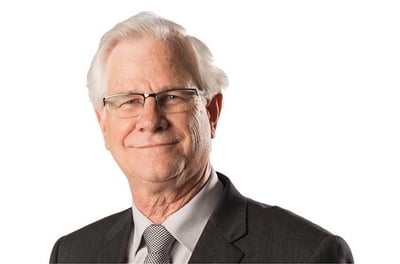Mind of Jacka: Staring Into Space
Blogs Mike Jacka, CIA, CPA, CPCU, CLU May 25, 2023

How much time do you spend looking like you’re not working? How much time do you spend staring at a (metaphorical) blank sheet of paper? How much time do you sit in contemplation of the next interview, the next test, the next meeting, the next report? How much of your time looks like it is being wasted?
We are all under an enormous amount of pressure. (Okay, I’m semi-retired, so the pressure may not be quite the same. But go with me here.) In particular, we’re all under pressure to get things done. That means that, when anyone in charge — auditor-in-charge, manager, director, leader — walks by an auditor who is sitting, staring into space, the knee-jerk reaction is the internal or external exhalation of “Get back to work!”
And, for those of us who are doing the work, when we realize we have been staring into space contemplating the report, test, interview, or meeting, we upbraid ourselves, slap ourselves across our internal face, and silently scream “Get back to work!”
Why do we not allow ourselves or allow others the luxury of actually sitting back and thinking about the work we are about to do? Ask anyone when they’ve had their best ideas and no one — no one — ever answers, “When I was workin’ real hard.” But our fear of looking idle means that we often plunge into our work too soon, with partially formed ideas and incomplete understandings of what that work will accomplish.
How often do we allow ourselves the luxury of thinking? I’m guessing it doesn’t happen all that much and, at the very least, I bet it doesn’t happen enough. The ability to spend time actually thinking, without external evidence of “work being done” gets disparaged as daydreaming, wool-gathering, dilly-dallying, dawdling, lazing, slacking off, goofing off, killing time, making a case for unemployment, and a plethora of other terms used to indicate that a lack of activity means a lack of “something getting done.” And those negative connotations result in the quality of our work suffering; we have not allowed ourselves the time to step back and make sure we know where we want to go and how we want to get there.
Let’s use report writing as an example. Throughout the audit, we have had time to contemplate what will be in that report. Maybe contemplation is overstating it, but time has had the opportunity to work its magic and help us develop what needs to be contained. But that is only a beginning. We all have our own approaches to report writing (as we do with any type of audit work), but I will go out on a limb and say the least successful approach any of us can use is to walk in, open up the report format, and start blazing away at the keyboard. We need time to assimilate what it is we want to say.
This is another one of those, “the first step is recognizing you have a problem” things. We have to recognize that we do not allow our brains the downtime necessary to pull the pieces of the puzzles together. Once we recognize the problem, we can step back and stop the destructive practice of working without thinking — we can allow ourselves the luxury/necessity of thinking.
And this has an interesting translation in the current world of remote work. As a boss, how do you watch them? How do you know they are working? How do you know they are working really hard? How do you know they are not staring into space rather than working really hard?
And the answer is simple. It doesn’t matter. Because more important than the optics of people looking like they are working are the results that are obtained. In the office or working remotely, results speak louder than visual perceptions.
I know as well as anyone that none of us can afford to spend all our time thinking. When a co-worker and I caught ourselves falling into the trap of always dreaming about a future but not taking action, we came up with the saying, “Dream as much as you want. But someday you have to deliver on that dream.”
However, delivery requires that dream. And the way most of us work does not provide the opportunity to create that dream, even if that dream is simply how to put together the next paragraph of the report.


